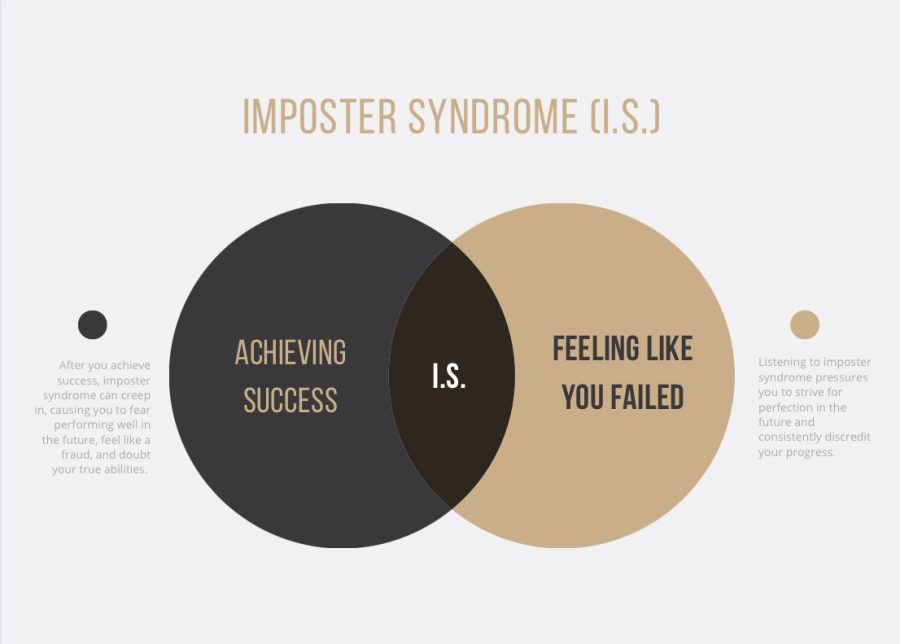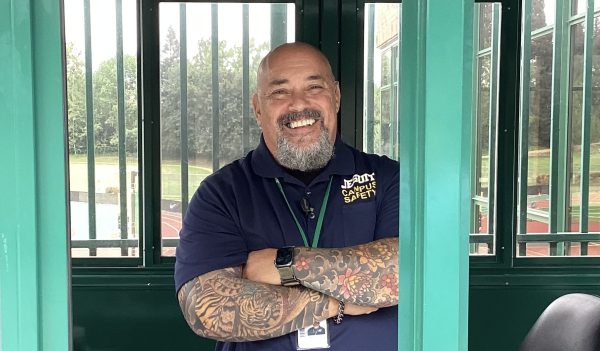Imposter Syndrome Tries to Surmount Success with Self-Doubt
Pesky symptoms of imposter syndrome can pressure you to discredit your successes, making your accomplishments feel like failures.
“I don’t deserve this success.”
“I’m not good enough for this role.”
“I can’t do this. I’m a failure.”
“I’m faking it until I make it, and someone’s going to find out.”
If intrusive thoughts like these have ever slipped into your mind, you’re not alone. A 2019 systematic review found that up to 82% of people have experienced thoughts like these that correspond with a phenomenon known as imposter syndrome.
During the 1970s, two American psychologists noticed that people in high-achieving positions noted feelings of self-doubt, incompetence, and fear about performing well in the future. They coined this internal experience as “imposter syndrome.” While imposter syndrome is not considered a disorder or mental health diagnosis, psychologists define it as a severe form of intellectual self-doubt.
Above all, those who feel like an imposter have a hard time internalizing their success. Rather than celebrating their accomplishments or taking pride in their hard work, worries cloud their mind. They pressure themselves to keep up their work in order to perpetuate the “facade” of their success. They anxiously observe their coworkers or fellow students, concluding that someone will realize they are not fit to be in the role they are in. They desperately strive for perfection, and are filled with guilt and anger when they don’t measure up to their unattainable standard.
Senior Quinn Burke has been involved in Jesuit’s honors curriculum since freshman year. Test-taking is the academic skill that has come most naturally to her throughout high school, but this is the area of her studies that she feels imposter syndrome creep in the most.
“I worry that I haven’t actually accomplished something when a test comes easy to me, even if I’ve put in the work to study hard for it,” Burke said. “I also feel that in the future, my ability to do well on tests could turn off immediately.”
Burke identifies with the imposter-like symptom of worrying her abilities will wane in the future.
“There’s this self-doubt moment,” Burke said. “What happens if one day, I lose my drive and motivation?”
Senior Piper Daskalos has been a key player for Jesuit’s women’s lacrosse team, and she committed to Johns Hopkins University to continue playing lacrosse at the D1 level.
Daskalos’ talent for the sport was noticed by coaches and teammates at a young age.
“I remember having a lot of coaches telling me, ‘You’re gonna be good one day,’” Daskalos said. “So I had to worry about living up to that expectation, and worry I might lose that potential.”
Daskalos explained that this inner conflict is where she notices imposter syndrome in her lacrosse career.
“I mostly saw it when I was in the recruiting process for college,” Daskalos said. “The pressure myself and external factors put on me to perform was like nothing I have ever experienced before. I wanted to make sure I did exactly everything right in the recruiting process, and I had to battle the fear of failing my young self’s expectations.”
She additionally noted how imposter syndrome tried to overshadow awards she received at the end of her most recent high school season.
“I instantly thought, ‘Okay, now I need to make sure I get those next year, too,’” Daskalos said.
Whether it be in academics or athletics, most people are bound to feel symptoms of imposter syndrome in an area of their life.
Our thoughts are powerful. Psychologist Lynda Antanatos wrote in a 2022 article for Choosing Therapy the importance of reframing your mindset to mitigate imposter syndrome.
“Resist the temptation to minimize or dismiss your own accomplishments, and try to make a conscious effort to acknowledge and celebrate each one,” Antanatos said. “Remember that every step forward reflects your skills, hard work, efforts, and preparation.”
“I remind myself that as much as I do have some natural abilities, I also work extremely hard for the grades I earn,” Burke said. “And, I remind myself that other people work hard, too. It also helps hearing praise from other people that I’m working hard. That’s the best compliment.”
“I can get so in my head that I forget all the people cheering me on and recognizing my work,” Daskalos said. “I feel best when I’m confident in myself and believe the positive things people are saying about me.”















